Centers & Outreach
- Student Success Center
- Research Communications Program
- Clarke Center for Human Imagination
Custom Workshops and Coaching for Individuals and Groups
The UC San Diego Research Communications Program can develop a tailored set of professional learning experiences for you, your research group, department or center.
We offer Zoom and in-person individual coaching sessions, research-group coaching sessions or workshops that can be adapted to meet the needs of your group.
In coaching sessions, the Research Communications Program team can provide feedback on your upcoming presentation or pitch or help you work on a specific skill such as:
Workshop size, length, format and topic can be tailored for you. Possible topics include designing visuals, selecting impactful language and avoiding hidden jargon, constructing narratives, vocal techniques to improve delivery, science advocacy and making the case to potential funders, on-camera interview practice, and more.
Please get in touch to discuss your goals. We can work with you to come up with a session or package that meets your needs and budget.
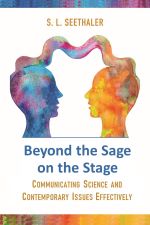 New Book on Research Communications by RCP Team Member
New Book on Research Communications by RCP Team Member
Beyond the Sage on the Stage: Communicating Science and Contemporary Issues Effectively by Sherry Seethaler has just been published and is available from the University of Toronto Press, Barnes and Noble and Amazon.
Drawing on an extensive research base that cuts across traditional disciplinary silos, Beyond the Sage on the Stage delivers evidence-based practical communication strategies and debunks often-repeated communication myths.
This book provides useful lessons for researchers, students, educators, medical professionals, journalists, policymakers, changemakers and anyone who wants to have more productive conversations about science, technology, health, the environment and the complex issues of our times. Topics explored include how to do the following:
See also the review in Public Understanding of Science and The Medium, as well as the article in The Conversation.

In this Research Brief, Amir Mohammadi, mathematics professor and speaker at the most recent quadrennial International Congress of Mathematicians, discusses his research on dynamical systems. He also provides us with a window into the process of mathematics research.
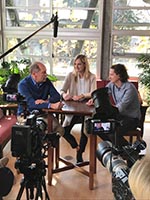
Presentation Workshop: Enhance Your Skills with Interactive Training and Practice
June 10 or 11 | 4 hours, in person
Workshop
In today’s tumultuous society, a greater understanding of science by the public is needed more than ever. But science has become increasingly compartmentalized. This complexity makes it difficult for researchers to clearly, convincingly and concisely explain what they do and why they do it to a variety of key audiences, including colleagues in other fields, potential
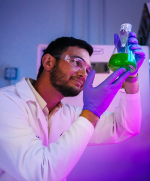 Telling Your Research Story
Telling Your Research Story
Tuesday, May 7, 1-3 pm | Virtual
Workshop
The workshop leaders are Mario Aguilera, award-winning science journalist and UC San Diego Director of Communications for Biological Sciences, and Sherry Seethaler, author of Beyond the Sage on the Stage: Communicating Science and Contemporary Issues Effectively and Director of Education Initiatives for Physical Sciences.
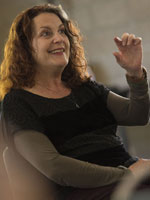
Voice and Body Language
Monday, April 22, 1-3 pm | Virtual
Workshop

Designing Multimedia Presentations and Visuals
Wednesday April 10, 1-3 pm | Virtual
Workshop
The first hour of the workshop will be the presentation, to be followed by an interactive constructive critique of slides submitted by workshop attendees. Seethaler will be joined by the other members of the RCP team, Mario Aguilera, Debbie Meyer and Kim Rubinstein.

SCORING THE TEXT: Boosting the Power and Impact of Your Research Talks
Friday, February 16 | 10 am to noon, Virtual
Workshop
Research indicates that the subtleties of voice, body language and gesture highly influence audience engagement and understanding of the information being communicated. In this workshop, with Kim Rubinstein, you will learn and practice vocal and gestural techniques, or “scoring the text” of your talks.
“Scoring the text” can include vocal techniques such as shifts in tone and volume, strategic use of pauses, and choosing words or phrases to emphasize what you say. Body language techniques include the use of signifying gestures to help the audience visualize and remember key concepts, and the use of spatial relationship to your audience. “Scoring the text” using these techniques can result in more effective presentations and more long-lasting impact on your listeners.
Kim Rubinstein is a UC San Diego professor emeritus and a nationally renowned theatre director who has directed plays and won awards at prestigious theatres around the country.
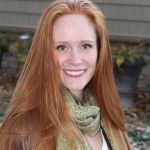 Social Media for Researchers 2: the pros and cons of science in the public sphere
Social Media for Researchers 2: the pros and cons of science in the public sphere
Friday, January 26 | 10 am to 11 am, Virtual
Social media has emerged as a cost effective, high-impact tool for scientific information dissemination, education and networking. However, to fully capitalize on the potential of social media, scientists must recognize and understand the challenges and opportunities that social media can pose. This informational session will cover the potential benefits and issues of sharing your science using social media, including information on communicating about contentious topics, hazard and risk.
All are welcome to attend, and the session will be relevant even if you missed the first session.
The presenter is Wendy Bohon, a geologist who studies earthquakes and works to improve the communication of science. Flier
 Social Media for Researchers 1: how to do it and how to prove it
Social Media for Researchers 1: how to do it and how to prove it
Wednesday, January 17 | 10 am to 11 am, Virtual
There are currently ~8.1 billion people in the world and 4.6 billion of those people are active social media users. This potential reach, as well as the low overhead cost and versatility of social media, makes it a powerful tool for science communication, education, and networking. This informational session will address how to effectively use different social media platforms to communicate science, ways to make time for social, how to convert existing products into social media content, and how to measure the efficacy of social media efforts.
The presenter is Wendy Bohon, a geologist who studies earthquakes and works to improve the communication of science.
 Making Connections: How to Use Words, Story and Gesture to Reach Your Audience
Making Connections: How to Use Words, Story and Gesture to Reach Your Audience
Thursday, November 30 | 10 am to 4:30 pm, in person
Workshop
This customized interactive workshop--designed to complement the Research Communication Program's presentation trainings--will prepare you to shine during your busy media season. It will include whole group activities and breakout sessions that will empower you with potent strategies for engaging your audiences' hearts and minds. Taught by leaders with expertise in journalism, theater, the sciences and cognitive psychology, the workshop will give you the opportunity to hone the following skills:
1) Ferreting out hidden jargon and choosing impactful language;
2) Constructing narratives that build on an audience's prior understanding and are stylistically optimized for your goals and the context; and
3) Using body language and vocal techniques to emphasize the meaning of your message and create rapport with your audience.
This is a customized workshop for faculty, postdoctoral and staff researchers in the Center for Western Weather and Water Extremes. If you are a UC San Diego faculty member interested in a customized workshop for your group or center, please contact us.

Presentation Workshop: Enhance Your Skills with Interactive Training and Practice
Thursday, December 14 or Monday, December 18 | 9 am to 1 pm, in person
Workshop
In today’s tumultuous society, a greater understanding of science by the public is needed more than ever. But science has become increasingly compartmentalized. This complexity makes it difficult for researchers to clearly, convincingly and concisely explain what they do and why they do it to a variety of key audiences, including colleagues in other fields, potential
Faculty and postdoctoral scholars, please indicate your interest by contacting Mario Aguilera (maguilera@ucsd.edu) or Sherry Seethaler (sseethaler@ucsd.edu).
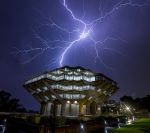 Communicating Hazard, Risk and Uncertainty in Crisis and Calm
Communicating Hazard, Risk and Uncertainty in Crisis and Calm
Friday, November 17 | 10 am to noon, Virtual
Workshop
Our communication has an impact. When we are communicating about hazards--which can affect people’s lives, livelihoods, and mental health--we need to be particularly careful and deliberate with how and what we communicate. This workshop will delve in to hazards communication, including how to build trust with audiences, the best practices for messaging during times of uncertainty, the differences in communication techniques and goals during calm and crisis.
The presenter is Wendy Bohon, a geologist who studies earthquakes and works to improve the communication of science, including the communication of hazard and risk.
 How to Design and Present a Poster Like a Pro
How to Design and Present a Poster Like a Pro
Tuesday, October 24 | 10 am to noon
Format: Virtual workshop, one hour presentation with examples, plus an optional hour for audience members to ask for feedback and advice on their posters.
Poster sessions are a fantastic way to network with colleagues in and across disciplines and connect with potential funders, but they can feel daunting to design and awkward to present. Whether you are a first-time poster presenter figuring out how to get started or an experienced poster presenter looking to polish your style, this session will offer tips you can use. It will cover what you should (and should not) put on your poster, what makes an effective title, how to organize your content, as well as evidence-based design principles illuminated with examples from different fields. Specific considerations for both face-to-face and virtual conferences will be discussed. Because your poster is an entry point for a conversation, this session will also explore what it means to “walk someone through” your poster and how to comfortably engage in a fruitful discussion that can lead to new collaborations (and impress the judges).
The presenter is Martina Maritan, scientific communication lead at Nanome and winner of the Best Scientific Poster at the 2021 Visualizing Biological Data conference.
Part of the Fall Presentation Series

SCORING THE TEXT: Boosting the Power and Impact of Your Research Talks
Tuesday, October 17 | 10 am to noon
Workshop
Research indicates that the subtleties of voice, body language and gesture highly influence audience engagement and understanding of the information being communicated. In this workshop, with Kim Rubinstein, you will learn and practice vocal and gestural techniques, or “scoring the text” of your talks.
“Scoring the text” can include vocal techniques such as shifts in tone and volume, strategic use of pauses, and choosing words or phrases to emphasize what you say. Body language techniques include the use of signifying gestures to help the audience visualize and remember key concepts, and the use of spatial relationship to your audience. “Scoring the text” using these techniques can result in more effective presentations and more long-lasting impact on your listeners.
Kim Rubinstein is a UC San Diego professor emeritus and a nationally renowned theatre director who has directed plays and won awards at prestigious theatres around the country.
Part of the Fall Presentation Series
 The Science on How to Give Presentations that Capture Your Audience
The Science on How to Give Presentations that Capture Your Audience
Tuesday, October 3 at 2pm or Wednesday, October 4 at noon (one hour)
Every presentation you give is an opportunity to reach new colleagues across disciplines, to market yourself, to impress potential funders, and to broaden awareness about the importance of your field. Yet, we all regularly see speakers that squander the opportunity and lose the audience by falling into the many multimedia presentation pitfall traps. This presentation on presentations will draw from scholarship in cognitive science, neuroscience and psychology to provide evidence-based practical tips on optimizing language, visuals, organization and flow, including strategies for enhancing accessibility and inclusivity. You will also come away with an understanding of how you can work with your own physiology to reduce presentation nerves and boost your presentation poise.
The presenter is Sherry Seethaler, author of Beyond the Sage on the Stage: Communicating Science and Contemporary Issues Effectively, which will be published by the University of Toronto Press in early 2024.
Part of the Fall Presentation Series

Presentation Workshop: Enhance Your Skills with Interactive Training and Practice
September 11, 9 am-1 pm or September 19, 11 am-3 pm | in person
Workshop
In today’s tumultuous society, a greater understanding of science by the public is needed more than ever. But science has become increasingly compartmentalized. This complexity has made it increasingly difficult for scientists to clearly and convincingly explain what they do and why they do it without jargon, acronyms and technical details to a variety of key audiences. Workshop participants will learn tips and tools that result in effective interviews and presentations, while enhancing their communication skills with on-camera practice and critique through the lenses of journalism, theater and science education.
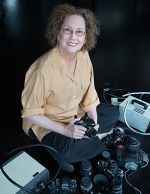
Design Impactful Figures (with Felice Frankel)
Wednesday, June 21 | 10 am to noon, Virtual
Workshop
Join us on the first day of summer for a workshop with award-winning scientific photographer, Felice Frankel. Felice Frankel is a research scientist at MIT and a fellow of the American Association for the Advancement of Science. Working in collaboration with scientists and engineers, her images have been featured on the covers of top scientific journals. She is also the author of multiple handbooks to help researchers design graphics. You can see her covers and learn more about her work at https://felicefrankel.com/ .
She will begin the workshop with a brief overview of the challenges she has seen over the years as she has worked with researchers to hone the communicative effectiveness of their figures. Following the presentation, participants will have the opportunity to learn from her constructive critique of figures that will be submitted by UC San Diego researchers prior to the workshop. Because researchers will be sharing unpublished figures, the workshop is only open to the UC San Diego campus community.

Presentation Workshop: Enhance Your Skills with Interactive Training and Practice
June 14 or 15 | 9 am to 1 pm, in person
Workshop
In today’s tumultuous society, a greater understanding of science by the public is needed more than ever. But science has become increasingly compartmentalized. This complexity has made it increasingly difficult for scientists to clearly and convincingly explain what they do and why they do it without jargon, acronyms and technical details to a variety of key audiences. Workshop participants will learn tips and tools that result in effective interviews and presentations, while enhancing their communication skills with on-camera practice and critique through the lenses of journalism, theater and science education.
Writing About Mathematics for the New York Times (with Steven Strogatz)
Tuesday, May 23 | 11 am, Virtual
Talk
When Steven Strogatz wrote a 15-part series on the elements of math for the New York Times, to his surprise — and his editor's — each piece climbed the most emailed list and elicited hundreds of appreciative comments. In this talk Steve will describe his adventures in bringing math to the masses, and will reflect on what works… and what doesn’t.
Steven Strogatz is the Jacob Gould Schurman Professor of Applied Mathematics at Cornell University. He works on nonlinear dynamics with applications to physics, biology, and the social sciences. His latest book, Infinite Powers, was a New York Times bestseller and was shortlisted for the 2019 Royal Society Science Book Prize.

SCORING THE TEXT: Boosting the Power and Impact of Your Research Talks
Tuesday, May 9 | 10 am to noon, Virtual
Workshop
Research indicates that the subtleties of voice, body language and gesture highly influence audience engagement and understanding of the information being communicated. In this workshop, with Kim Rubinstein, you will learn and practice vocal and gestural techniques, or “scoring the text” of your talks.
“Scoring the text” can include vocal techniques such as shifts in tone and volume, strategic use of pauses, and choosing words or phrases to emphasize what you say. Body language techniques include the use of signifying gestures to help the audience visualize and remember key concepts, and the use of spatial relationship to your audience. “Scoring the text” using these techniques can result in more effective presentations and more long-lasting impact on your listeners.

December 14, noon-4pm or December 15, noon-4pm | Pacific Hall 3500
Workshop
In today’s tumultuous society, a greater understanding of science by the public is needed more than ever. But science has become increasingly compartmentalized. This complexity has made it increasingly difficult for scientists to clearly and convincingly explain what they do and why they do it without jargon, acronyms and technical details to a variety of key audiences. Workshop participants will hear about today’s media landscape, learn tips and tools to deliver effective interviews presentations and enhance their communication skills with on-camera practice and critique through the lenses of journalism, theater and science education.

June 17, 9am-1pm or June 24, noon-4pm | Pacific Hall 3500
Workshop
In today’s tumultuous society, a greater understanding of science by the public is needed more than ever. But science has become increasingly compartmentalized. This complexity has made it increasingly difficult for scientists to clearly and convincingly explain what they do and why they do it without jargon, acronyms and technical details to a variety of key audiences. Workshop participants will hear about today’s media landscape, learn tips and tools to deliver effective interviews presentations and enhance their communication skills with on-camera practice and critique through the lenses of journalism, theater and science education.

Since the onset of the COVID-19 pandemic, a greater understanding of science by the public is needed more than ever. But science has become increasingly compartmentalized. This complexity has made it increasingly difficult for scientists to clearly and convincingly explain what they do and why they do it without jargon, acronyms and technical details. Workshop participants will hear about today’s media landscape, learn tips and tools to deliver effective interviews and enhance their skills with on-camera practice and critique through the lenses of journalism, theater and science education.
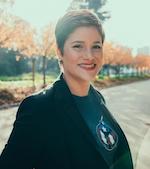
| Virtual Workshop
This workshop will be centered on teaching what culturally relevant science communication is, communicating science to a broader audience, and useful tools and examples for culturally relevant science communication.
Dr. Mónica Feliú-Mójer, Director of Communications & Science Outreach, Ciencia Puerto Rico, Associate Director of Diversity & Communication Training, iBiology, Producer, Wonder Collaborative
This workshop is being offered through our collaborators at the UC Davis Science Communications Program.
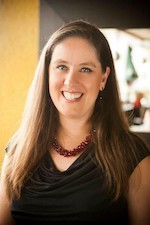
| Virtual Workshop
Would you like to be able to communicate your research effectively in a range of formal and informal settings and with audiences from elementary school students to senior citizens?
The Fleet Science Center runs more than a dozen outreach programs from Science and Technology After School Programs to Two Scientists Walk into a Bar to The Sharp Minds Adult Lecture Series.
These programs are always looking for faculty, postdoc and student researchers to illuminate STE(A)MM topics (science, technology, engineering and the arts mathematics and medicine).
Andrea Decker from the Fleet will provide tips on how to make your work engaging and accessible to students, teachers and other publics--and the many opportunities you have to reach them.
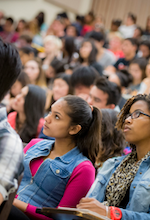
| Virtual Workshop
Are you nervous or tight before giving a lecture? Do you run out of breath? Do you find yourself vocally strained at the end of the day?
The Research Communications Program invites you to join Theatre and Dance Professor Eva Barnes for a workshop designed help you warmup vocally to communicate better and improve the sound of your voice.
An athlete wouldn’t dream of competing without warming up physically. Musicians warmup before performing, so do actors. They warmup physically, vocally, and mentally. Yet we as professors, teachers, educators speak all day long without warming up our voices and our bodies.
In this workshop you will learn physical warmup with breath and body release, heartbeat sound, signature notes, tone, vibrations, range, articulation and landing your thoughts for authentic communication
Professor Eva Barnes is a professional actor and vocal coach who has taught Voice, Speech, Dialects, and Acting in the Department of Theatre and Dance for over 25 years.

| Virtual Workshop
When you have the opportunity to share your research with the public you are welcoming your listeners to enter a unique portal into your questions, your processes, your discoveries and your challenges. You are offering them a chance to imagine your research in a personal, up-close way.
How can you usher them into your research world in a way that captures their minds and hearts, as well as their curiosity? You might launch your talk or interview with a story that exemplifies the need for your research, or a story about what sparked your initial or continuing passion for your research, or a recent discovery or challenge in your research, or the burning question that drives your research, or provocative first line, or a juicy fact or two.
Your entrance into any research communication can be specifically crafted to both orient and attract your listeners to connect to the meaning of your research, to you as the unique scientist you are, and to the more precise details of your work. In this one-hour workshop we will experiment with ways to launch your research communications, as well as how to exit your talk in a way that can make a lasting impression.
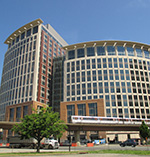
| Virtual Workshop
“Outstanding proposal from a diverse, well-qualified team. Addresses a high-priority need. Approach is exceptionally innovative. Potential for transformative impact is high. Strong rationale for proposed goals/objectives. Integration of disciplinary expertise, leveraging of unique organizational assets, and plans for evaluation and sustainability are all noteworthy strengths. Highly recommend funding.”
Want reviews of your proposals to reflect this level of enthusiasm? In this presentation, Sharon Franks and Wendy Groves in UC San Diego’s Research Development group discuss ways to make proposals more reviewer-friendly, persuasive, and likely to succeed. Examples, tools, and companion animals are used to inspire and support those across all experience levels who aspire to win grants, fellowships, and other awards.

| Virtual
Workshop
Extraordinary times call for extraordinary measures. We have been making a grand effort to communicate inside of a Zoom box for nearly ten months to varying degrees of success.
How can we communicate most effectively and authentically inside of our Zoom boxes and out into the world of the general public? This is a special Communicating Science workshop that will explore and practice ways of communicating your science research on the Zoom format to diverse audiences.
Effective communication goes beyond a PowerPoint presentation or simply distilling research into a clear message. It must connect to the hearts and minds of the audience. Techniques and practices for communicating your research with dynamic authenticity, connection to your audience, vivid language, and storytelling are woven throughout the workshop.
The workshop is an active training in the art and science of communicating your work to diverse audiences. The workshop is led by Professor Kim Rubinstein and her team and uses techniques synthesized from theatre training, journalism, and Professor Rubinstein’s research on creative cognition.
This event will be hosted on Zoom. We especially encourage postdoctoral scholars to take advantage of this unique professional learning opportunity.

| Virtual
Panel
Host: Kit Pogliano Speakers: Steve Hedrick, Kim Prather, Kim Rubinstein and Sherry Seethaler
The year 2020 has put science in the spotlight as never before. From wearing masks during the pandemic to questions surrounding vaccinations, science has been thrust into the center of our lives with social media, allegations of fake news and political mistrust fanning flames of doubt. In a program co-sponsored by the Research Communications Program, a panel of experts will discuss core issues of science communications, public distrust and authenticity, with a focus on issues intertwining the COVID-19 pandemic. Event Flyer
 Oct. 16, Nov. 8, Dec. 18, 2019 or Jan. 24, 2020 (half day) | Studio Ten 300
Oct. 16, Nov. 8, Dec. 18, 2019 or Jan. 24, 2020 (half day) | Studio Ten 300Mistrust. Doubt. Fake news. A greater understanding of science by the public is needed more than ever to help societies understand and act in a chaotic world. But science has become increasingly compartmentalized. This complexity has made it increasingly difficult for scientists to clearly and convincingly explain what they do and why they do it without jargon, acronyms and technical details. Workshop participants will hear about today’s media landscape, learn tips and tools to deliver effective interviews and enhance their skills with on-camera practice and critique through the lenses of journalism, theater and ethics.
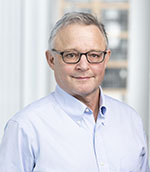 Explaining Everything in Two Minutes or Less (with Joe Palca)
Explaining Everything in Two Minutes or Less (with Joe Palca)Wednesday, November 6, 2019 from 10-11 am | Kavli Auditorium (Tata Hall)
Seminar Flier
You really can convey a lot information in two minutes. Of course your audience won’t be getting a graduate seminar understanding of your topic, but that level of detail should be saved for graduate seminars. Join renowned NPR science correspondent, Joe Palca, to learn how you can crisply capture a research story to reach a wide audience.
Joe Palca is a science correspondent for NPR. Since joining NPR in 1992, Palca has covered a broad range of science topics. His series, “Joe’s Big Idea,” explores the minds and motivations of scientists and inventors. He co-founded the NPR Scicommers program, a collective of science communicators. Before becoming a journalist, he earned a Ph.D. in psychology from the University of California, Santa Cruz where he worked on human sleep physiology. Palca has also worked as a television producer, and a news writer for the journals, Science and Nature. Palca has won numerous awards, several of which came with attractive certificates.
The seminar is open to all.
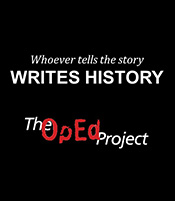
Tuesday, June 18, 2019 from 9:30-5pm | 4211 NSB
Workshop
On the heels of its well-received, recent “Spark Talk” on campus, The OpEd Project, a New York-based think tank and leadership organization, is returning to present a small group workshop for STEM faculty. The one-day, thought-leadership workshop is aimed at developing an opinion piece for publication. Workshop topics include:
The strategies learned in the workshop will help prepare faculty for research advocacy among policymakers, potential donors and other publics. Participants also will learn techniques for making their voices heard in professional settings. Early-career faculty (assistant- and associate-level) are especially encouraged to apply.
This workshop is hosted by the Research Communications Program and is supported in part by an Innovation Grant from the Office of the Vice Chancellor for Equity, Diversity, and Inclusion.

April 22 or 24 or May 6 or 8, 2019 from 9-1pm | Studio Ten 300
Workshop
Mistrust. Doubt. Fake news. A greater understanding of science by the public is needed more than ever to help societies understand and act in a chaotic world. But science has become increasingly compartmentalized. This complexity has made it increasingly difficult for scientists to clearly and convincingly explain what they do and why they do it without jargon, acronyms and technical details. Workshop participants will hear about today’s media landscape, learn tips and tools to deliver effective interviews and enhance their skills with on-camera practice and critique through the lenses of journalism, theater and ethics.
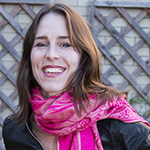 Thursday, April 11, 2019 from 2-3:30pm | Great Hall
Thursday, April 11, 2019 from 2-3:30pm | Great HallThis keynote workshop by The OpEd Project is designed to bolster your ideas, leave you with a deeper sense of what you and your colleagues know and believe, and offer actionable steps for developing your own opinion pieces with impact. The workshop will:
"A well-written proposal, but fails to meet our funding priorities."
No one wants to invest blood, sweat and tears in writing a research proposal only to read those disappointing words. Key to avoiding them is early contact with your program officer, who can provide indispensable coaching to new (and veteran) investigators. Program officers provide essential insights that are not apparent on the granting agency's website or request for proposals. This short workshop (offered in partnership with UCSD's Office of Research Affairs) will provide strategies for initiating contact, seeking advice and building relationships and trust with program officers at state and federal granting agencies. Presenters are Angela Phillips Diaz, Kaitlin Chell, Wendy Groves, Julian Betts and David Kleinfeld. All are welcome to attend.
 Friday, November 9, 2018, 9-1pm | AP&M 2240
Friday, November 9, 2018, 9-1pm | AP&M 2240Mistrust. Doubt. Fake news. A greater understanding of science by the public is needed more than ever to help societies understand and act in a chaotic world. But science has become increasingly compartmentalized. This complexity has made it increasingly difficult for scientists to clearly and convincingly explain what they do and why they do it without jargon, acronyms and technical details. Workshop participants will hear about today’s media landscape, learn tips and tools to deliver effective interviews and enhance their skills with on-camera practice and critique through the lenses of journalism, theater and ethics.

Tuesday, November 6, 2018, noon to 1:30 pm | Faculty Club
Seminar/Panel Flier
"A well-written proposal, but fails to meet our funding priorities."
No one wants to invest blood, sweat and tears in writing a research proposal only to read those disappointing words. Key to avoiding them is early contact with your program officer, who can provide indispensable coaching to new (and veteran) investigators. Program officers provide essential insights that are not apparent on the granting agency's website or request for proposals. This short workshop (offered in partnership with UCSD's Office of Research Affairs) will provide strategies for initiating contact, seeking advice and building relationships and trust with program officers at state and federal granting agencies. Presenters are Angela Phillips Diaz, Kaitlin Chell, Wendy Groves, Partho Ghosh, David Meyer, Julian Schroeder and Mark Thiemens.
Priority to assistant-level faculty in STEM disciplines. Registration closed.September 20-22, 2018 | TBA
Workshop Flier
Kim Rubinstein, Professor of Theatre and Dance at UCSD, is the creative director and designer of these three-day intensive workshops for faculty and postdoctoral fellows. Incorporating her research in performance and the brain science of the creative mind, Professor Rubinstein's Talking Research Clinic is a unique place to study and practice the art and science of research communication using distilling the message practices, grounding exercises, improv, authentic emotional presence, and journalism techniques that focus on dynamic language and storytelling.
Food and drinks are provided each day, and each participant receives a packet of information, a flash drive with files of their on-camera interviews, and a surprise free gift.
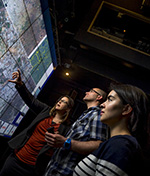 Friday, August 24, 9-3pm | Location TBA
Friday, August 24, 9-3pm | Location TBA
Workshop Flier.
Increasingly, today’s researchers are required to communicate to a spectrum of audiences, including journalists, donors and policymakers. Effective communication involves formulating goals, tailoring information to the context and medium, and developing the flexibility to adapt and respond to diverse audiences during the give-and-take of communication interactions. This workshop, offered for postdocs by a team of five professional coaches with a range of expertise in science communication research and practice, will feature the following:
1) Introduction to the scholarship on the science of science communication;
2) Opportunity to practice in different scenarios, including data sharing with a colleague in another field, a media interview, and a deliberative citizen forum; and
3) Constructive feedback from experts and colleagues.
This rich professional development encourages reflection on what it means to communicate effectively, including when challenging questions and seemingly contrasting worldviews have the potential to lead to contentious situations, and it provides useful strategies for successful research communication going forward.
June 19-21, 2018 | TBA
Workshop Flier.
Kim Rubinstein, a professor in UC San Diego’s Department of Theatre and Dance, will be the creative director and designer of these three-day intensive workshops. Using methods borrowed and synthesized from improvisational theatre, journalism and Professor Rubinstein's system for optimal creative thinking, this hands-on training will focus on helping scientists find the spark or root of their work, developing their unique voice and style of connecting to audience with authenticity and meaning. Talking Research will culminate in a media day, which will include on-camera interviews with professional journalists.
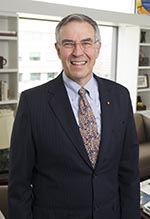 Monday, June 11, 2018, 5PM | Atkinson Hall Auditorium
Monday, June 11, 2018, 5PM | Atkinson Hall Auditorium
Lecture and reception
Rush D. Holt, Ph.D., became the chief executive officer of the American Association for the Advancement of Science (AAAS) and executive publisher of the Science family of journals in February 2015. In this role, Holt leads the world's largest multi-disciplinary scientific and engineering membership organization. Over his career, Dr. Holt has held positions as a teacher, scientist, administrator, and policymaker. Before coming to AAAS, Holt served for 16 years as a member of the U.S. House of Representatives, representing New Jersey's 12th Congressional District. His legislative work earned him numerous accolades, including being named one of Scientific American magazine's "50 National Visionaries Contributing to a Brighter Technological Future" and a "Champion of Science" by the Science Coalition.
Monday, June 11, 2018, 11AM-1PM | TBA
Workshop Flier.
At the local, state and national levels, researchers can have a positive impact through dialogue with policymakers. Although more important now than ever, doing so effectively requires a unique set of communication competencies. Join us to learn from four panelists, Glenn Ruskin, Barbara Sawrey, Seth Cohen and Rush Holt, who have extensive experience informing public policy and advancing science. The workshop will begin with an overview, by Glenn Ruskin, on how researchers can have a voice in the policymaking process. Over lunch, panelists will share lessons learned in a discussion with participants. This faculty workshop is designed to complement the evening talk by Rush Holt.
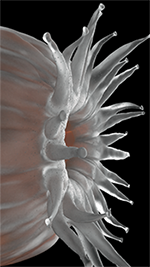 Wednesday, May 30, 2018, 1-3PM | NSB Atrium
Wednesday, May 30, 2018, 1-3PM | NSB Atrium
Open house Flier.
Quality illustrations, interactive digital visuals and three-dimensional physical models can be powerful tools to help you communicate your scientific and mathematical research to a range of audiences, including fellow researchers, students and teachers, and broader publics. Please stop by to see examples on display, learn more about existing campus partnerships that can assist you with the art part of art meets science, and learn about hew partnerships under development (and get the opportunity to provide input about your needs). This event is offered as a collaboration between the UC San Diego Research Communications Program and the UC San Diego Libraries Digital Media Lab. Light refreshments will be served.
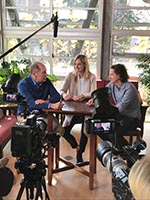 Focused workshop: Genetics and climate change research
Focused workshop: Genetics and climate change research
Friday, April 27, 2018, 9-1PM | Location TBA
Workshop
Mistrust. Doubt. Fake news. A greater understanding of science by the public is needed more than ever to help societies understand and act in a chaotic world. But science has become increasingly compartmentalized. This complexity has made it increasingly difficult for scientists to clearly and convincingly explain what they do and why they do it without jargon, acronyms and technical details. Workshop participants will hear about today’s media landscape, learn tips and tools to deliver effective interviews and enhance their skills with on-camera practice and critique through the lenses of journalism, theater and ethics.
 Thursday, March 15, 2018, 5-7PM | Conrad Prebys Music Center
Thursday, March 15, 2018, 5-7PM | Conrad Prebys Music Center
Discussion and Performance Flier.
How are mathematics and music connected? What can music help us appreciate about the intricacies of mathematics? In what ways have mathematical advances influenced composers? At this event, mathematics professors Louis Rowen and Dan Rogalski will perform Beethoven's Sonata for Cello and Piano in D Major, Opus 102 No. 2. They will explore the synergies of mathematics and music in a discussion before the performance.
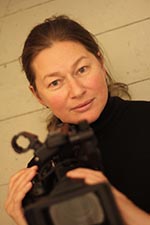 Monday, February 5, 2018, 5-7PM | UCSD Price Center Theatre
Monday, February 5, 2018, 5-7PM | UCSD Price Center Theatre
Movie screening with Q&A
This event will explore the communication of mathematics and the portrayal of the work of mathematicians through documentary film. It will begin with a screening of The Discrete Charm of Geometry, a film by award-winning documentary filmmaker Ekaterina Eremenko. Following the screening, Fields Medalist Efim Zelmanov will lead a Q&A with Eremeko to delve into the creative process, gain insights about bringing mathematics to life on the screen, and discover what she has learned about mathematicians and mathematics along her filmmaking journey. Flier.
Friday, January 26, 2018, 1-4pm | CET, Literature Building 210
Open house
Looking for just the right tool to help people visualize your research, or help your students map out and connect the concepts they are learning? Having difficulty sorting through the options for designing infographics, video presentations, mind maps, timelines and blogs, and for enabling interactivity with your students or other audiences? To help you navigate this universe, the Apps and Appetizers open house will feature a wide range of tools, plus faculty, staff and students with expertise using those tools, and examples of what they have created. Come meet your colleagues and make a discovery that allows you to rock your audiences. Flier.
In partnership with the Center for Engaged Teaching and Education Technology Services.
 Friday, December 1, 2017, 9-1PM | Location TBA
Friday, December 1, 2017, 9-1PM | Location TBA
Workshop
Mistrust. Doubt. Fake news. A greater understanding of science by the public is needed more than ever. At the same time, science has become increasingly compartmentalized. This complexity has made it increasingly difficult for scientists to clearly and convincingly explain what they do and how they do it, which can leave us swirling in jargon and technicalities. Workshop participants will hear about today’s media landscape, learn tips and tools to deliver effective interviews and enhance their skills with on-camera practice. Flier.
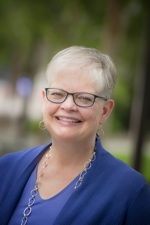 Wednesday, November 15, 2017, 9-1PM | UCSD Faculty Club
Wednesday, November 15, 2017, 9-1PM | UCSD Faculty Club
Workshop
Leadership Communications involve presenting broader messages or messages beyond the scope of a single research program. This workshop will introduce participants to different kinds of leadership communication situations they may encounter in their professional careers and give them the opportunity to practice the verbal and non-verbal communication skills and strategies necessary for effective leadership communication. Flier.
 November 3, 2017, Noon-1PM | NSB Auditorium
November 3, 2017, Noon-1PM | NSB Auditorium
Seminar
Researchers have many different options to apply social media to enhance appreciation for and understanding of their work. This panel is the first in a series that will be designed to help researchers select from the array of social media options and use social media optimally for their research and communication goals. Flier.
 September 27, 2017, 10:30-11:30am | NSB Auditorium and Noon-2:30pm | UCSD Faculty Club
September 27, 2017, 10:30-11:30am | NSB Auditorium and Noon-2:30pm | UCSD Faculty Club
Panel Discussion and Workshop
This two part series will begin with a case study of a recent venture capital success. The panel will introduce some of the communication strategies needed for communicating with potential financial backers. The workshop will give participants the opportunity to practice their pitches. Flier.
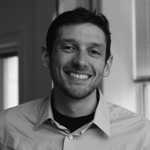 Tuesday, September 19, 2017, 9-12PM | 4211 NSB
Tuesday, September 19, 2017, 9-12PM | 4211 NSB
Workshop
Data displays in scientific journals are typically information dense by design. Often these figures are not optimal for scientific talks or oral or written presentations to audience members from outside the field. This workshop will focus on applying the principles of graphic design to make graphs and other data displays more informative and accessible, while enhancing their visual aesthetic. Flier.
 June 28-30, 2017
June 28-30, 2017
Workshop
Kim Rubinstein, a professor in UC San Diego’s Department of Theatre and Dance, will be the creative director and designer of these three-day intensive workshops. Using methods borrowed and synthesized from improvisational theatre, journalism and Professor Rubinstein's system for optimal creative thinking, this hands-on training will focus on helping scientists find the spark or root of their work, developing their unique voice and style of connecting to audience with authenticity and meaning. Talking Research will begin with three days of intensive training and will culminate in a media day, which will include on-camera interviews with professional journalists.
 June 23, 2017, 12-1PM | Natural Sciences Building Auditorium
June 23, 2017, 12-1PM | Natural Sciences Building Auditorium
Panel Discussion
Public Information Officers (PIOs) are your go-to resource for getting your research findings to the media. In this workshop, learn about how your PIO can help get coverage of your work in traditional and non-traditional media. Background for this workshop available here.
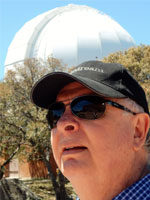 Wednesday, May 17, 2017, 12-1PM | Natural Sciences Building Auditorium
Wednesday, May 17, 2017, 12-1PM | Natural Sciences Building Auditorium
Seminar
Given the preponderance of fake news and the attacks on the credibility of science, communicating effectively with the public about science is more important than ever. This seminar by Dennis Meredith, author of Explaining Research, will show how to reach and engage audiences.
UC San Diego’s Research Communications program draws on interdisciplinary scholarship to combine the guiding theoretical perspective and practical expertise crucial for communicating effectively with a wide range of audiences, including those with questions or concerns about the methods, findings or implications of scientific research. See our paper in the journal Science Communication.
A joint effort of the School of Physical Sciences, School of Biological Sciences and Department of Theatre and Dance, funded by a grant from the Gordon and Betty Moore Foundation.
 |